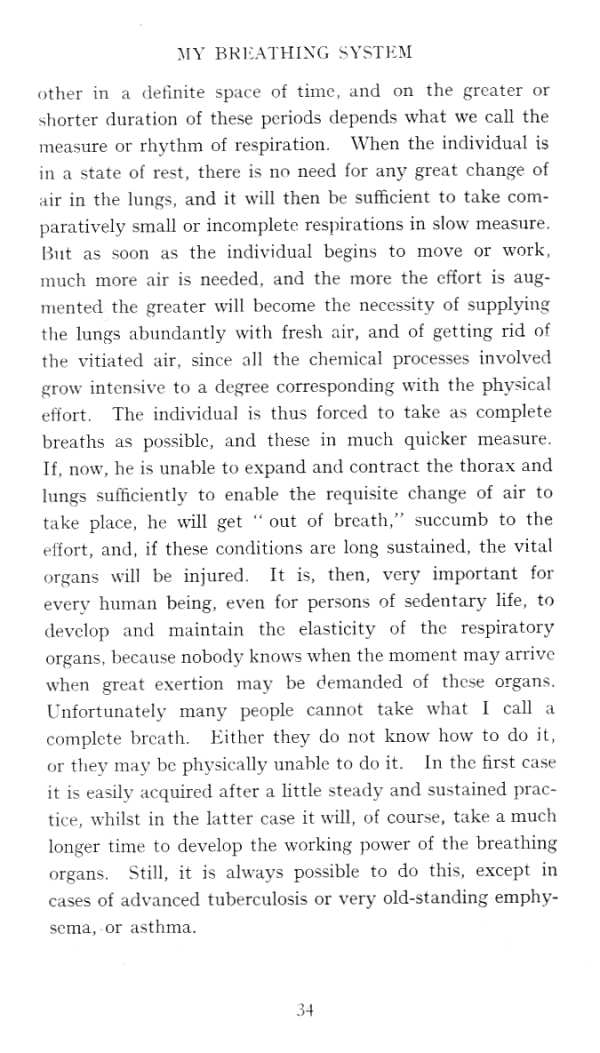mbs 034

MY BRKATHI.YG SYSTEM
other in a detinite space of time, and on the grcater or shorter duration of these periods depends what we cali the measure or rhythm of respiration. When the individual is in a state of rest. there is no need for any great change of air in tłie lungs, and it will then be sufficient to take com-paratively smali or incomplete respirations in slow measure. But as soon as the individual begins to move or work. much morę air is needed. and the inore the cffort is aug-mented the greater will become the necessity of supplying the lungs abundantly with fresh air, and of getting rid of the vitiated air. sińce all the Chemical processes involved grow intcnsiee to a degree corresponding with the physical effort. The individual is thus forced to take as complete breaths as possiblc, and these in much ąuicker measure. [f, now. he is unable to expand and contract the thorax and lungs sufliciently to enable the reąuisite change of air to take place, he will get " out of brcath,” succumb to the effort, and, if these conditions arc long sustained, the vital organs will be injured. It is, then, very important for every human being, even for persons of sedentary life. to devclop and maintain the elasticity of the respiratory organs, because nobody knows when the moment maj' arrive when great exertion may be demanded of these organs. Unfortunately many people cannot take what I cali a complete brcath. Either they do not know how to do it, or they may bc physically unable to do it. In the first case it is easily acquired after a little steady and sustained prac-tice, whilst in the latter case it will, of course, take a much longer time to develop the working power of the breathing organs. Still, it is always possible to do this, except in cases of advanced tubereulosis or very old-standing emphy-sema, or asthma.
.54
Wyszukiwarka
Podobne podstrony:
mbs 076 MY BRKATHING SYSTEM in the tuition of all tcchiiical points of a gamę, but they very, verv s
27627 mbs 086 MY BRKATHINC, SYSTEM The movements should be carried as far as flesibility admits. Cur
mbs 065 MY BREATH ING SYSTEM exhalation comprise, each of them. two abdominal move-ments—four in all
mbs 100 MY BRKATHING SYSTEM EXERCISE No. 8. Fuli breathing during arm-raising sideways and subsecjue
26761 mbs 018 MY BKI.ATHING SYSTEM The Importance of Physical Exercise immediately before Deep-Breat
69626 mbs 116 MY BRF.ATHING SYSTEM featliering) will, in most cases, last j ust as long as two strid
mbs 045 MY BRKATHINTt SYSTEM our breathing ? ” The author (Dr. Hulbert) submits that this is accompl
więcej podobnych podstron